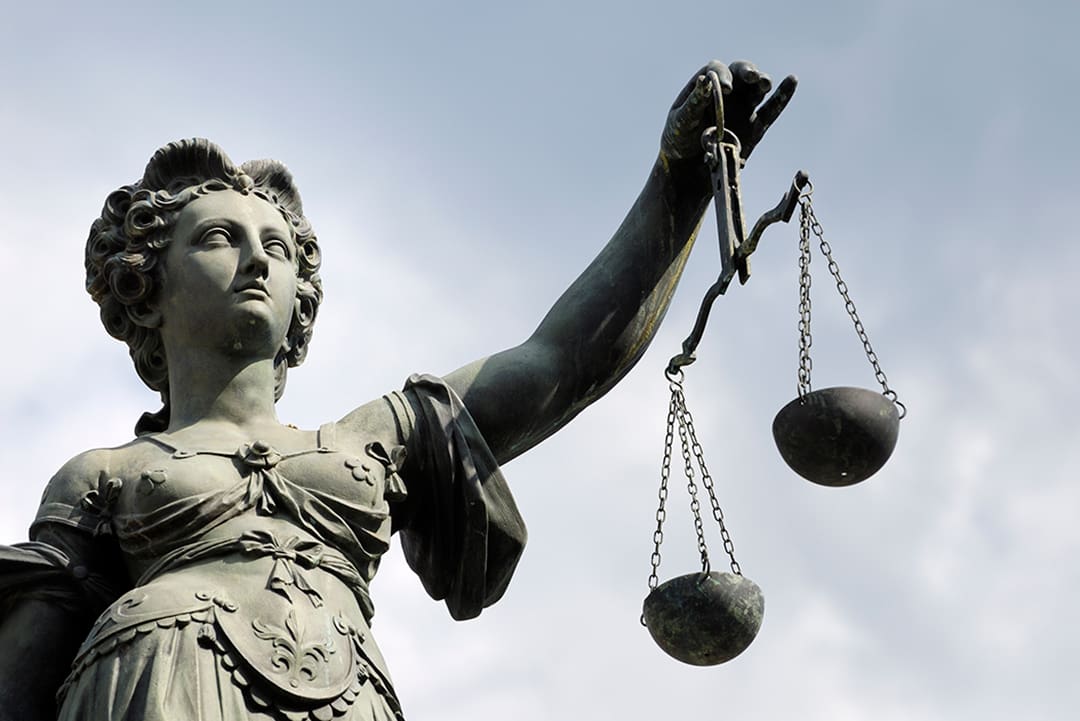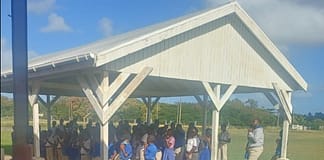
SOURCE: sdg.iisd.-ICJ Advisory Opinion on Climate Change: The Case for the Caribbean
By Justin Sobion, Counsel for Grenada and Saint Vincent and the Grenadines in the ICJ advisory proceedings on climate change
The oral hearings in the International Court of Justice (ICJ) advisory opinion (AO) proceedings on climate change ended in December 2024. Most of us have long deserted the international law capital in The Hague to return to our respective homes. As 2025 rolled over, we are now back to our regular scheduled programmes. Yet for me, the time spent in The Hague was surreal and nostalgic.
Today I still daydream about the time that we, as Global South delegations, spent at the Carlton Ambassador Hotel, working together for an admirable cause – climate justice. In retrospect, the Carlton Ambassador was transformed into a Global South winter ICJ academic camp. Caribbean, Pacific, and African delegates were all passing through, exchanging and sharing ideas on how best to respond to the legal questions the UN General Assembly (UNGA) agreed to in 2023.
If the Carlton Ambassador could be represented as a melting pot of Global South ideas, then the Peace Palace – which houses the ICJ – could aptly be described as the shrine for small island developing States (SIDS) and States vulnerable to climate change. For two weeks, at 10 am every morning, in a wintry December, we would religiously make our pilgrimage to no. 2 Carnegieplien (by foot, bicycle, tram, or diplomatic coach) to pay “legal” homage before 15 judges of the highest court in the world. Our mission – to plead before this court that all States have robust obligations to protect the climate system and that there are legal consequences if they fail to do so.
As the Caribbean Coordinator of our pre-ICJ climate change meetings (which included several Zoom meetings, an in-person “writeshop” and an ICJ clinic), I am immensely proud of what we as SIDS have achieved. We participated before the Court with dignity and honor, truthfully unravelling to the Court the stories of our vulnerabilities to climate change. Overall, we were ten Caribbean States that presented legal arguments before the ICJ – Antigua and Barbuda, The Bahamas, Barbados, Belize, Dominica, the Dominican Republic, Grenada, Jamaica, Saint Lucia, and Saint Vincent and the Grenadines. The Caribbean Community (CARICOM), which comprises 15 Member States, is the home of 16 million citizens. To make a comparison, our entire CARICOM population is less than half of the population of Tokyo or New Delhi.
For most of the Caribbean States that participated in these hearings, this was the first time they were presenting written and oral submissions before the ICJ. This was history in the making as we attempted to break unprecedented grounds. Unsurprisingly, the learning curve was steep. We were thrown into the deep end, in an era when sea levels are rising. Human resources were lacking. For example, a country in our region only had one legal advisor at the capital available to work on the ICJ brief. This could be compared to any Global North country which, I suspect, had a battalion of capital-based lawyers brainstorming how their submissions should be drafted. The lack of human resources, especially in a space involving a highly specialized area of international law, was just one of the reasons why other small island Caribbean States did not participate in this all-important ICJ AO on climate change.
As a result of this, we needed to adopt a strategy – one which harnessed the commonality of our climate woes. We realized that we in the Caribbean region are too small – in terms of population and size – to make an individual impact. There is strength in numbers, and the only way our voices could be heard was if we united and coordinated as a region. This approach was more than speaking in unison and supporting each other’s legal arguments. This was about Caribbean delegates rolling up their sleeves backstage (at the Carlton Ambassador) and getting down to the nitty-gritty business of how to safeguard an already degraded climate system. It did not matter if one was from Dominica, Grenada, or Saint Vincent and the Grenadines. We were all listening, reading, and tweaking each other’s national submissions before they were delivered before the Court. Speaking of backstage, Saint Lucia’s performance and passionate delivery on the “ICJ stage” was described by the Earth Negotiations Bulletin (ENB) as the “Taylor Swift” concert of international law.

In fact, it was not only the Caribbean States that were collaborating in the margins of the ICJ AO. I witnessed Caribbean and Pacific delegates, all huddled across a circular table at the Carlton Ambassador, deliberating the precise wording to be used in an oral statement that would give maximum impact before the judges. As thoughts floated across the meeting room, the delegate who was drafting the statement would energetically type off on their laptop. This was island integration at its best!
Despite giving our best showing before the Court, in the back of our heads, we as SIDS acknowledged that we could not afford to be complacent. We cannot assume everyone will understand the realities we face on the ground and the threat that climate change poses to present and future generations. That is the thing about being a member of the SIDS family – we often find ourselves on the back foot trying to defend ourselves in climate battles. But this could be a blessing in disguise. When placed between a rock and a hard place, SIDS need to become even more persuasive by sophistically arguing why climate justice matters and what would happen if our needs are ignored.
After the hearings, friends, family, and colleagues have asked me my thoughts on how the judges would rule in this AO. My honest answer is that I do not know. My response is guarded since there were 15 judges on the panel who all hail from different backgrounds and legal traditions. Personally, I am cautiously optimistic. I hope the judges will reflect on the human side of climate change. I hope the AO would consider that States must act as trustees of the climate system for present and future generations. Hope is all we have, and it is hope that makes life worth living.
In closing, I would like to thank all the Caribbean governments for taking up this historic cause at the ICJ. Our delegations are indebted to the support of the Vanuatu Climate Justice Programme team, the Organisation of African, Caribbean, and Pacific States (OACPS), our international supporters and collaborators, the Pacific Community, Greenpeace, Oxfam, the World’s Youth for Climate Justice, and the Pacific Islands Students Fighting Climate Change for making our Caribbean ICJ AO dream a reality.
* * *
This Guest Article is part of a project that seeks to raise awareness and build momentum and knowledge around the ICJ advisory opinion on obligations of States in respect of climate change and to promote a better understanding of the implications of the advisory opinion among sustainable development decision makers.
Advertise with the mоѕt vіѕіtеd nеwѕ ѕіtе іn Antigua!
We offer fully customizable and flexible digital marketing packages.
Contact us at [email protected]















